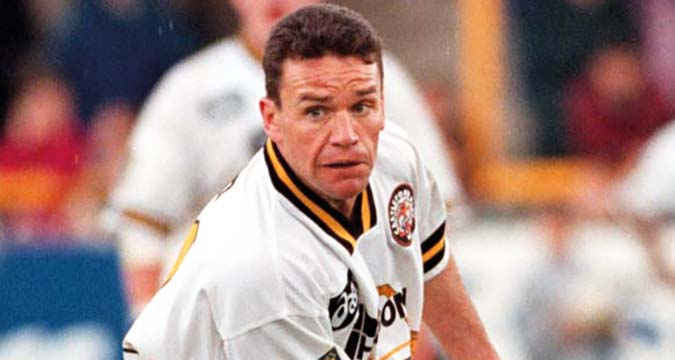 In last week's issue, Mike Ford told us about the early parts of his career, including partnering the great Brett Kenny in the halves for Wigan at Wembley in the classic 1985 Challenge Cup Final.
This week we look at his later playing career, his move into coaching and his switch of codes to rugby union and his views on the essential differences
In last week's issue, Mike Ford told us about the early parts of his career, including partnering the great Brett Kenny in the halves for Wigan at Wembley in the classic 1985 Challenge Cup Final.
This week we look at his later playing career, his move into coaching and his switch of codes to rugby union and his views on the essential differences Rugby League Heroes: Mike Ford (part two)
 In last week's issue, Mike Ford told us about the early parts of his career, including partnering the great Brett Kenny in the halves for Wigan at Wembley in the classic 1985 Challenge Cup Final.
This week we look at his later playing career, his move into coaching and his switch of codes to rugby union and his views on the essential differences
In last week's issue, Mike Ford told us about the early parts of his career, including partnering the great Brett Kenny in the halves for Wigan at Wembley in the classic 1985 Challenge Cup Final.
This week we look at his later playing career, his move into coaching and his switch of codes to rugby union and his views on the essential differences 